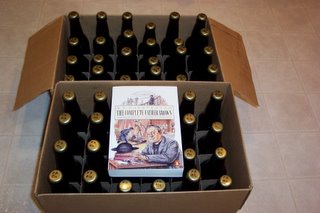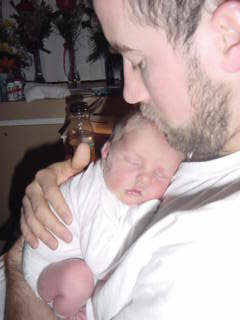I had a conversation with a friend earlier this week on being "baptized with the Holy Spirit." Of course the "fruits" of this are speaking in tongues, miraculous healing, etc. Which of course becomes a discussion of how we view these "gifts of the Spirit." We did both agree on the popular explanation of these gifts coming as a blessing at a time when the Church was just beginning, the full sense of the Gospel was being taken to the Gentiles, and these gifts were ways of edifying, encouraging, and growing the Church during its beginnings. But also, as the Church grew and became stable, these gifts were no longer needed, and so they began to "disappear."
I also want to point out how we see God's "presence" or communication with Israel change throughout the Old Testament. In the Garden, God walks with Adam; God talks to Cain, Abel, Noah, etc.; Christ appears before Abraham, Jacob, etc. Then, when God leads His people out of Egypt, He literally goes before them as a cloud by day and a pillar of fire by night. But after awhile, once Israel is established in the promised land, we see God's presence begin to change form. The LORD rarely "appears" to anyone anymore, and He begins to speak only through the profits. Once God establishes His people, He makes them strong, He makes them numerous, He sets up a weekly Sabbath for them; the people now begin to work out their faith a little bit differently.
So here is where I feel like I run into some inconsistencies, and I would very much like this post to be the first comment for a discussion:
In the first statement, we are more than willing to say that the Church is different now than it was in its beginnings, and so "gifts of the Spirit" are no longer needed to help advance the church, but are we willing to hold to that argument in other areas? The main one that comes to mind is selection of deacons, elders, and church leaders. When I urge against selecting a young man for one of these positions who may meet a third of the qualifications, I am always given the argument that the lists of qualifications for these positions are more like guidelines, and it is impossible to find a man that will meet all of the qualifications. I'm okay with that a little bit; but I still ask, "Why not wait till the man is married, has children, and has shown he can raise them faithfully?" And of course the response is, "Paul wasn't married, Timothy didn't have kids, even Christ Himself wouldn't have met all these qualifications. Besides, we really need more leaders in our church right now." Correct me if I'm wrong, but that seems to be a similar argument to the one used by the Charismatic churches for still practicing the use of "gifts of the Spirit"; the same argument we just refuted at the beginning.
The Church today is not the Early Church; it is bigger, grander, and even more beautiful now because Christ in His rule over it has made it so. I would argue that time is in our favor, the numbers are in are favor, again, victory is already ours, and Christ rules as sovereignly today as ever. We have time, so why don't we wait for young men to grow into godly leaders? We are numerous, so why aren't we more patient in finding faithful leaders? Our LORD rules, so why don't we pray, pray, and pray some more and then wait for God's answer?
I also want to know if this theme we see in the Old Testament plays out in the life of the Church after Christ? There seem to be some similarities. And we also wait, as the faithful remnant of Israel did, but with much greater expectation in the next coming of our LORD and Savior. But I also feel like God has delivered us into the promised land and we have just decided to pitch tents and live as nomads until Christ brings us full redemption; instead of realizing that, although Christ will finally establish His people completely, we need to continue building that nation now.




